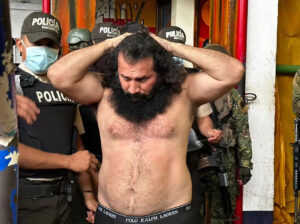Our resident diplomats answer your most burning COP questions (thanks for submitting them via Wednesday’s briefing!)
Question 1: Are multilateral agreements or bilateral agreements a more effective way to achieve diplomatic success? – S.M.C
As a general rule, bilateral agreements – e.g. free trade agreements – are easier to negotiate and implement because they focus on the interests of only two parties.
Stay on top of your world from inside your inbox.
Subscribe for free today and receive way much more insights.
Trusted by 99,000+ subscribers
No spam. No noise. Unsubscribe any time.
But collective problems – like climate change – require collective solutions that account for many more parties’ interests, and that means broader multilateral agreements are crucial for both legitimacy and execution.
In the context of climate change, a bilateral deal between two larger emitters, say the US and China, could be meaningful, but ultimately these broader COP meetings are crucial to get the job done. – John
Question 2: If the idea is to save the environment, shouldn’t this be a zoom conference? – R.B
I’m reminded of an embarrassing incident in which my former employer sent 23 executives (sadly not including me) to Paris for a meeting on ‘finding operational efficiencies’. Needless to say, the headlines (“diplomats fly business class to Paris to save money”) more or less wrote themselves.
The more serious answer is that complex negotiations like COP simply must be done in person. Not only are video conferences terrible for building trust and rapport – both essential for ‘getting to yes’ in diplomacy – but the fact that there are 197 very different parties to COP would make a zoom pretty unworkable.
I do, however, agree with you that the optics of planeloads of diplomats arriving in Dubai to talk about how to reduce emissions aren’t great. – John









